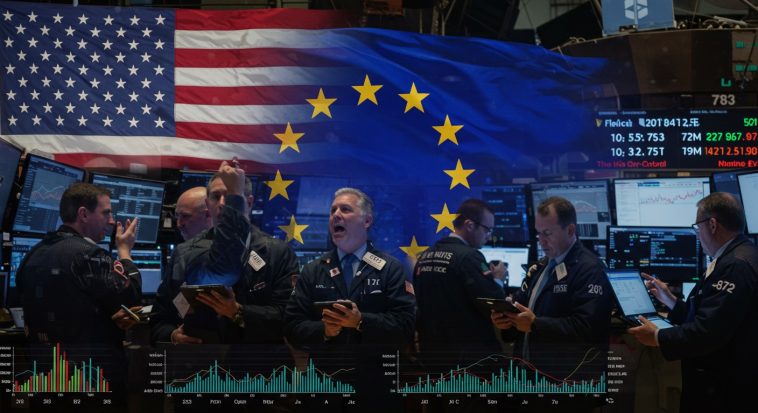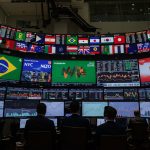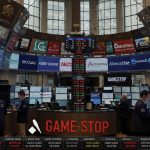Optimism returned to Wall Street on Tuesday as investors welcomed a surprise pause in US tariff hikes on the European Union, fueling hopes of a breakthrough in transatlantic trade negotiations.
After a quiet start to the week due to Memorial Day, the stock market roared back with strong gains across all major indices. President Trump’s decision to delay a steep 50% tariff hike on EU imports until July 9 opened the door for fast-tracked negotiations—an olive branch that markets embraced.
Major Averages Rebound on Trade Relief
The Dow Jones Industrial Average jumped more than 600 points, climbing 1.4%, while the broader S&P 500 gained 1.7%. Leading the charge was the tech-heavy Nasdaq Composite, up 2.1%, buoyed by rising optimism in global markets and a series of positive headlines.
“Markets love clarity, and even a temporary reprieve in tariff pressure is enough to fuel a rally,” said Maria Benton, chief strategist at Evercrest Securities. “Investors are betting on progress, or at least a cooling-off period in US-EU tensions.”
US-EU Trade Talks Offer a Glimmer of Stability
Over the weekend, President Trump announced that the US would hold off on its planned tariff hike on EU imports, originally set to take effect June 1. That delay until July 9 comes with a renewed push for accelerated negotiations—a welcome change after months of escalating rhetoric.
The European Union responded swiftly, agreeing on Monday to speed up talks with the US, a move seen as a step away from an all-out trade war. The development eased investor nerves and added momentum to a market already eager for a reason to rebound.
“There’s a sense that cooler heads might finally be prevailing,” said Eric Loman, a senior analyst at Hudson Trade Group. “This gives businesses and markets some breathing room—and time to avoid a worst-case scenario.”
Bond Yields Fall, Dollar Strengthens
The tariff delay wasn’t the only factor lifting sentiment. Treasury yields retreated sharply after signs that Japan may reduce bond sales, helping to calm a recent wave of global bond market volatility. The yield on the 30-year US Treasury note slipped to around 4.96%, signaling easing investor anxiety.
At the same time, the US dollar firmed up, benefiting from a combination of risk-off moves in other regions and expectations that the Federal Reserve will keep rates steady.
Lower yields typically signal a flight to safety or confidence in cooling inflation, both of which help equities, particularly high-growth sectors like tech.
Consumer Confidence Breaks Losing Streak
Adding to the bullish mood, consumer confidence rebounded in May after five straight months of decline. Analysts view the turnaround as a sign that households may be regaining their footing amid cooling trade tensions and stable inflation trends.
“Consumer sentiment is a powerful driver of economic activity,” noted Lisa Harper, an economist at Brenton Capital. “When people feel confident, they spend—and that supports corporate earnings and job growth.”
Earnings Watch: All Eyes on Nvidia
Tech giant Nvidia is set to report earnings on Wednesday in what’s being billed as the quarter’s most anticipated release. The stock surged Tuesday following reports that it may unveil a lower-cost AI chip for China—potentially helping it sidestep export restrictions.
Other major players set to report this week include Okta, Macy’s, and Costco, giving investors plenty to digest amid an already dynamic macro backdrop.
What’s Next for Markets?
Looking ahead, attention will shift to a string of key economic reports due later this week, along with commentary from Federal Reserve officials. While rate policy is expected to remain steady, traders will be listening for any hints of a shift in tone.
Also looming is President Trump’s controversial tax bill, which narrowly passed the House and could spark further market debate if it advances in the Senate.
For now, though, Wall Street appears to be breathing easier. A pause in trade hostilities and a stronger consumer outlook have rekindled investor confidence—at least temporarily.
“Today’s rally doesn’t mean the risks are gone,” warned Benton. “But it’s a reminder that diplomacy still has the power to move markets.”



